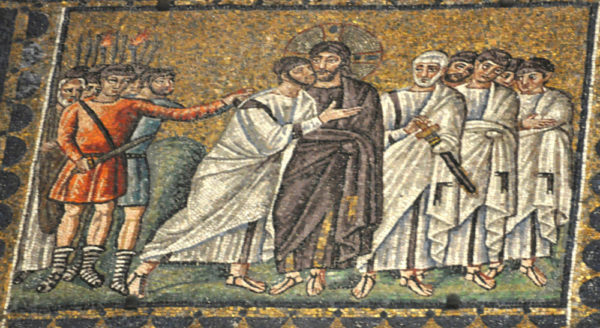Time
A conceit has developed among modern ‘philosophers’ about the importance of the Greek’s understanding of time. It involves two words: χρόνος (chro-nos) and καιρός (kai-pos), both of which appear in quick succession in Luke’s account of the encounter between Zechariah and Gabriel. καιρός is used in Gabriel’s pronouncement inflicting silence on Zechariah until John was born. Zechairah would remain speechless “because […]
Justice and Wisdom
The introduction to the Gospel of Luke uses four Greek words that appear only in the two books attributed to him. Some of the other vocabulary in that passage occurs elsewhere only in the Pastoral Letters to Titus and Timothy for which some speculate that Luke served as amanuensis to Paul. Simularities in the erudite […]
Ecstacy
Mark describes the reaction of the women who found the tomb of Jesus empty like this: “And going out from the tomb they fled, for trembling and amazement had held them, and they said nothing to anyone for they were afraid.” “Trembling” and “Amazement” in Greek are τρόμος (tro-mos) and ἔκστασις (ek-sta-sis) from which we get our English words “tremor” and […]
Have Joy!
Χαῖρε Βασιλεῦ τῶν Ἰουδαίων (chai-re ba-si-leu tōn i-ou-dai-ōn), is the phrase the soldiers of the Roman cohort which guarded Pilate’s headquarters used to mock Jesus. It’s usually translated “Hail, King of the Jews!” but that first word χαῖρε is really just the 2nd person singular imperative mood of the verb meaning “to have joy.” In other places it is translated “Rejoice!” […]
A Little Word Can Mean A Lot
Today, bloody minded political calculus in the West doesn’t typically involve flogging and crucifixion. The suffering has been sanitized and distanced so that modern sensibilities are not offended. The goal is the same however: to appease the mob. In Rome this was done with bread and circuses. Today it’s stimulus checks and pork-barrel funding of unnecessary projects with imaginary money
Ask or Beg?
There are two Greek words which are often translated “ask”: αἰτέω (ai-te-o) and ἐρωτάω (er-o-ta-w). Both of them are used in the passage where Jesus appears before Pilate in Mark 15. When Pilate is asking questions ἐρωτάω is used. Later when the ESV version states: “Now at the feast he used to release for them one prisoner for whom they asked.” The […]
Who Arrested Jesus?
Here’s a translation of Mark 14:43 where I substitute modern terminology for certain institutions of the ancient world: “…Judas, one of the twelve, arrives and with him a mob with swords and clubs from the hereditary elite, the intellectual elite, and those with entrenched interest in maintaining the status quo.” The words in italics are what “the […]
Wait Here and Watch
After all the disciples had declared they were loyal to the death, Jesus took his inner circle of Peter, James, and John to a more secluded area of the Mount of Olives called Gethsemane and told them he was “very sorrowful.” The word used here is περιλυπός (peri-lup-os). “Peri” is something that surrounds or encompasses another […]
Scandalized! (Not Me?! Part II)
After instituting the Communion sacraments, Jesus and his disciples sang a hymn (ὑμνἐω: hum-neo…this is where we get the word “hymn” because in Medieval Greek the “u” started to be pronounced like our “y”) and left the Upper Room to go hang out in one of their favorite places on the Mount of Olives. When they […]
Μήτι ἐγω; (Not me?!)
The interrogative in Greek sometimes comes upon you unexpectedly. You may think you are reading a statement which seems counterfactual until you get to the end of the sentence and find the Greek question mark. It looks like a semicolon. Only then you get the sense of it. As an example you might read “Elephant do […]









